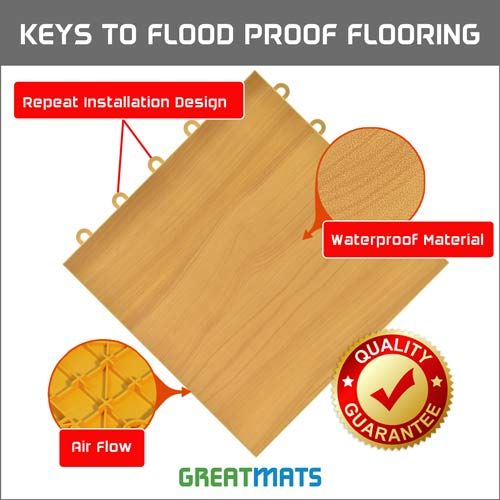Plastic Raised Flooring Basement

With vinyl flooring for basements you ve got both challenges covered.
Plastic raised flooring basement. Many basement flooring materials like paint epoxy tile and rubber flooring for example can go down directly over the basement s original poured concrete floor as long as the concrete is in good condition. The bottom section of the interlocking basement tile is made out of a non porous material high impact polypropylene plastic that prevents water absorption. If flooding in your basement is a concern vinyl is the material you want. This is a fancy durable moisture proof and informal floor that makes good sense for basements especially.
The system is made of interlocking plastic tiles that are elevated on grids. The right types of vinyl are highly resistant to water damage and they don t need to be nailed down glued down or stuck down in any way. But this direct installation will result in a floor that s cold underfoot. It s not designed to be used with a nail down type of flooring.
Always install basement carpet on top of a vapor impervious subfloor this will raise the temperature of the floor in winter make your carpet more pleasant to walk on and most importantly prevent humid air from cozying up to the concrete and triggering mold growth. It s made of plastic so water just can t penetrate it. Give your basement family space a wood or stone floor look with max tile raised floor tiles. Extremely versatile max tile floors are popular for dance floors aerobic and exercise flooring and show room floors and feature a 7 year wear layer.
These tiles feature a waterproof raised plastic base topped with a commercial grade vinyl surface. It is a high strength material that will support heavy weights without breaking. Water resistance of vinyl flooring vinyl is largely made of plastic which makes it water resistant.














































